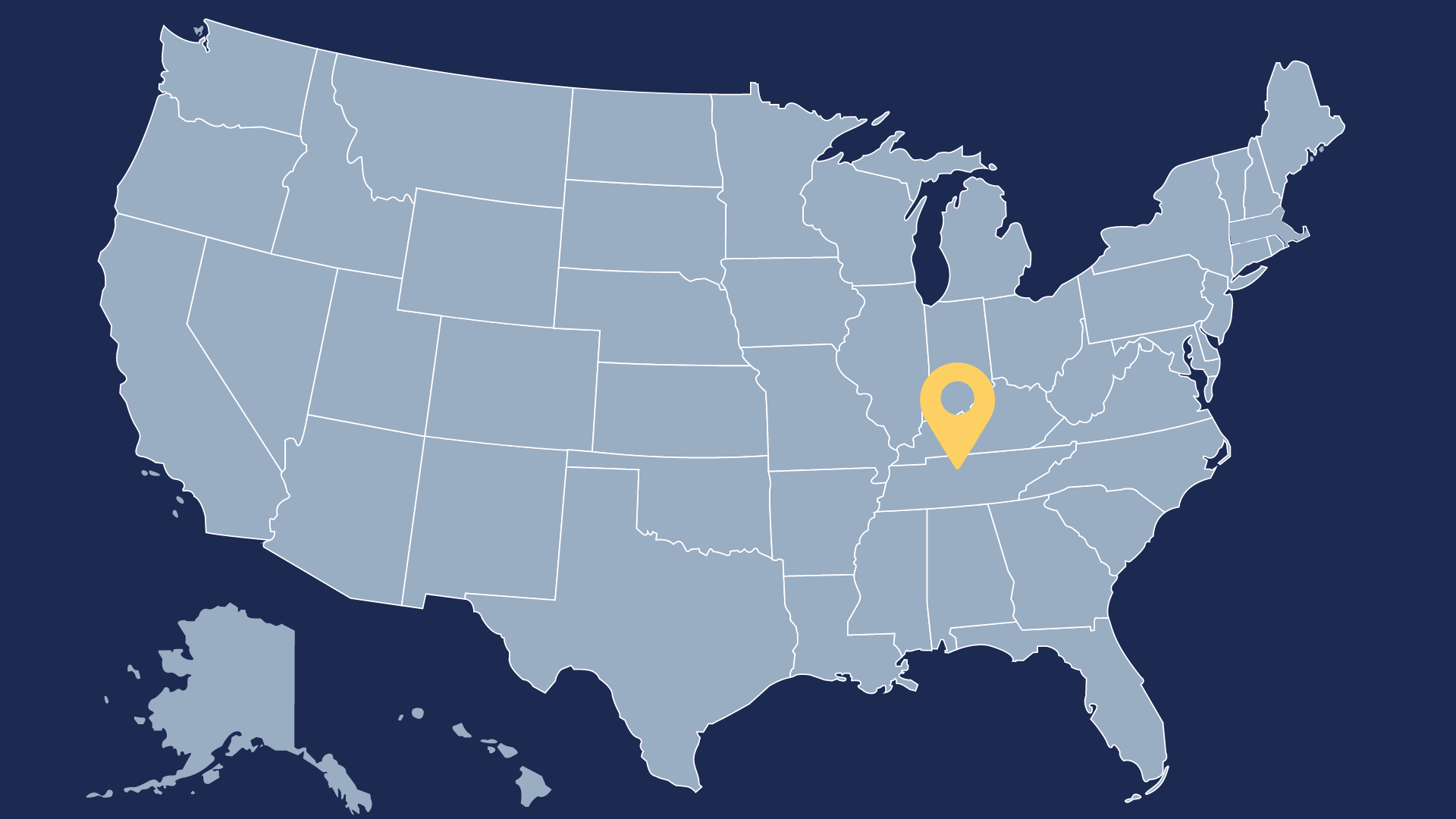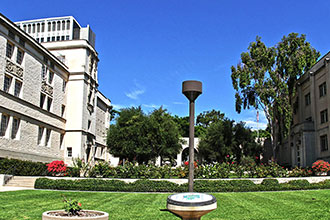REQUIREMENTS AND CAMPUS GUIDE
Villanova University
Villanova University has been sponsored by the Augustinian Order since it was founded in 1842. As such, the school promotes values of truth, unity, and love, encouraging students ”to think critically, act compassionately and succeed while serving others.” Today, it is home to an undergraduate population of 6,700 students and 3,500 graduate students. Here’s everything you need to know about Villanova!
REQUIREMENTS AND CAMPUS GUIDE
Villanova University
Villanova University has been sponsored by the Augustinian Order since it was founded in 1842. As such, the school promotes values of truth, unity, and love, encouraging students ”to think critically, act compassionately and succeed while serving others.” Today, it is home to an undergraduate population of 6,700 students and 3,500 graduate students. Here’s everything you need to know about Villanova!

REQUIREMENTS AND CAMPUS GUIDE
Villanova University
Villanova University has been sponsored by the Augustinian Order since it was founded in 1842. As such, the school promotes values of truth, unity, and love, encouraging students ”to think critically, act compassionately and succeed while serving others.” Today, it is home to an undergraduate population of 6,700 students and 3,500 graduate students. Here’s everything you need to know about Villanova!
School Location:
VILLANOVA, PA
School Type:
PRIVATE RESEARCH UNIVERSITY
Admissions Rates:
ADMITTED: 23.5%
GENERAL INFO
SAT/ACT Scores:
Test Optional for 2024-2025
Admission Cycle
Class of 2027 Test Scores
Middle 50% SAT: 1450 – 1530
Middle 50% ACT: 33-35
Dates/Deadlines:
Early Decision I (EDI): November 1
ED I Results: December 15
Early Action: November 1
EA Results: January 20
Early Decision II (ED II): January 15
ED II Results: February 15
Regular Decision: January 15
Regular Results: April 1
School Information:
Undergraduate population: 6,989
Faculty Ratio:
10:1
Interviews Considered:
No
VILLANOVA TIPS & GUIDE
How difficult is it to get into Villanova?
Of the 23,842 applicants who applied to join Villanova’s Class of 2028, 23.5% or 5,603 were accepted. 87% were in the top 10% of their high school class, and reported test scores were within the 1450-1530 middle 50% SAT range and a 33-35 middle 50% ACT range. As such, most applicants should consider Villanova to be a match or low reach school as they work to build a balanced college list.
What is the campus like at Villanova?
Villanova is located in Villanova, Pennsylvania, just 12 miles outside of Philadelphia, and 95 miles south of NYC—just a two hour drive away. Students at Villanova enjoy access to both an urban center and a quiet, peaceful campus.
The Villanova University housing system consists of 31 buildings: 17 traditional residence halls and 14 apartment-style halls, located on Main, South, and West campus. Each residence houses between 30 and 540 residents,
98% of freshmen live on campus, and one third of those first-year students live in COMMUNITAS living and learning communities, which allow for integrated academic and community living. Students in COMMUNITAS communities live together and take both a one-credit Communitas course and an Augustine and Culture Seminar (ACS) course all together.
Students are guaranteed housing for three consecutive years, after which only one-third of the senior class have the opportunity to continue living on campus.
Villanova has more than 300 student organizations, broadly divided into categories including:
- Academic Organizations
- Service and Advocacy Organizations
- Campus Recreation
- Cultural and Identity-Based Organizations
- Media Organizations
- Office Ambassadors
- Religious and Spiritual Organizations
- Student Interest Groups
You can find a list of student organizations at Villanova here.
In addition, Villanova does have a Greek life system with 23 current active chapters and over 1,477 affiliated members. Like the rest of the Villanova community, members of Greek life dedicate themselves to service, and have raised over $90,000 in philanthropy. To become a member of the Greek community, students must have completed at least one semester at Villanova, and have a minimum 2.75 cumulative GPA. Villanova does not have fraternity and sorority housing.
How diverse is Villanova?
Of the 6,989 students enrolled at Villanova in the fall of 2022, 148 or 2% were nonresidents, 758 or 10.8% were Hispanic or Latino, 403 or 5.8% were Black or African American, 4,766 or 68.2% were white, 3 were American Indian or Alaska Natives, 508 or 7.3% were Asian, 6 were Native Hawaiian or other Pacific Islander, 283 or 4.0% were two or more races, and 114 were of an unknown race or ethnicity. International students at Villanova hail from nearly 50 countries,
How do I apply to Villanova?
Students can apply to Villanova using the Common Application. The school offers four application options: Early Decision I, Early Action, Early Decision II, and Regular Decision.
- Early Decision I and Early Decision II are binding application options, meaning that students who are admitted through the early decision applications must attend if accepted. Early Action applications are non-binding.
- Early Decision I and Early Action applications are due November 1st. ED applicants hear back of their admissions decision by December 15th while early action applicants are notified of the admissions decision by January 20th. Early Decision II and Regular Decision applications are due January 15th and applicants are notified of their admissions decisions February 15th and by April 1st, respectively.
Villanova takes a holistic approach to reviewing applications. Applying to Villanova requires submission of the following:
- Common Application
- Villanova Supplements
- Secondary School Report
- High school transcript
- Standardized Testing – Optional for applicants through the 2025-2026 admission campaign
- One teacher letter of recommendation
- Optional Counselor Recommendation
- Senior year grades
- $80 application fee
Villanova does not conduct admission interviews, nor do they consider demonstrated interest as part of their admission process. Please note:
- “Villanova School of Business: past successful applicants have had at least one year/one unit of high school Calculus (beyond Pre-Calculus), if Calculus is offered at their school. If given the choice, it is advised students take Calculus over Statistics if only one can be taken.
- College of Engineering: a Physics course is required for all engineering applicants. Calculus is strongly encouraged (beyond Pre-Calculus), if Calculus is offered at your school.
- Fitzpatrick College of Nursing: applicants are required to have successfully completed at least one year/one unit of Biology and Chemistry during high school. Advanced levels of Biology and Chemistry are strongly encouraged.”
What is Villanova known for?
Villanova is ranked by Niche as the #4 Best Catholic College in America and as the #10 Best College Athletics in America, and by U.S. News and World report as having the #23 best Bachelor of Science in Nursing.
Villanova takes pride in promoting research and scholarship on their campus, and the Villanova Institute for Research and Scholarship promotes a vital research culture at Villanova through programs, resources, and applied research projects. In addition, the Center for Research and Fellowships provides students with support in nationally competitive scholarships and fellowships and facilitates student research opportunities, and the Presidential Scholars Program (PSP), covering tuition and living expenses for a select number of undergraduate students.
Villanova was awarded a $3 million, five-year National Science Foundation ADVANCE Institutional Transformation Grant in 2018—funding intended to increase women’s representation in Science, Technology, Engineering and Math (STEM) fields. This 2018 grant results in VISIBLE, the Villanova Initiative to Support Inclusiveness and Build Leaders, which is an interdisciplinary, cross-college team that is working to advance intersectional gender equity at the University.
In addition to being a well-ranked Augustinian university, Villanova hosts the world’s largest Special Olympics fall festival in the world every fall, inviting athletes with intellectual disabilities to compete in bocce, long distance running and walking, power-lifting, flag football, soccer, and volleyball. 1,000 athletes, 400 coaches, and 5,000 volunteers join the event annually.
Does Villanova have a good athletic department?
The Villanova Wildcats compete in the NCAA Division 1. Students also play in intramural and club sports. Outside of organized sports, Villanova students can get active in one of the campus’ five recreation centers or open recreation facilities.
What are Villanova’s core curriculum and programs?
Villanova has four undergraduate schools and colleges. The undergraduate schools are:
- College of Liberal Arts and Sciences
- Villanova School of Business
- College of Engineering
- M. Louise Fitzpatrick College of Nursing
Villanova students can choose from an array of majors across the four schools or design their own major, called an Individually Designed Major (IDM). About 120-150 students are offered a spot in the Honors program annually.
Villanova University has a Core Curriculum for all of its undergraduate students. The Core Curriculum is as follows:
- Foundation Courses
- Augustine and Culture Seminar (ACS 1000/1001) (2 courses)
- Theology and Religious Studies (THL 1000) (1 course)
- Philosophy (PHI 1000) (1 course)
- Ethics (ETH 2050) (1 course)
- Language Requirement (Proficiency)
- Mathematics or Statistics (1 course)
- Natural Sciences (2 courses with labs)
- Literature and Writing Seminar (1 course)
- History (1 course)
- Social Sciences (2 courses)
- Fine Arts (1 course)
- Theology and Religious Studies – Upper Division (1 course)
- Diversity Requirement
- Two of the courses counting towards degree requirements must have a Diversity attribute. Select one course from two of the three possible areas of diversity as indicated by the Diversity 1, Diversity 2, or Diversity 3 attributes.
- Villanova students must also fulfill requirements imposed by their schools and departments. For example, students enrolled in the Villanova School of Business must take Business Dynamics and Information Technology as freshmen. As such, prospective students should research requirements for their intended major as they prepare to apply to Villanova.
Can I afford Villanova?
For the 2024-2025 academic year, the total estimated cost of attendance, including tuition, room and board, and fees, is $88,812. Villanova students receive financial aid in the form of grants, scholarships, loans, and student employment. You can use Villanova’s Net Price Calculator to estimate how much aid you may be eligible to receive.




